#christa woolf
Text
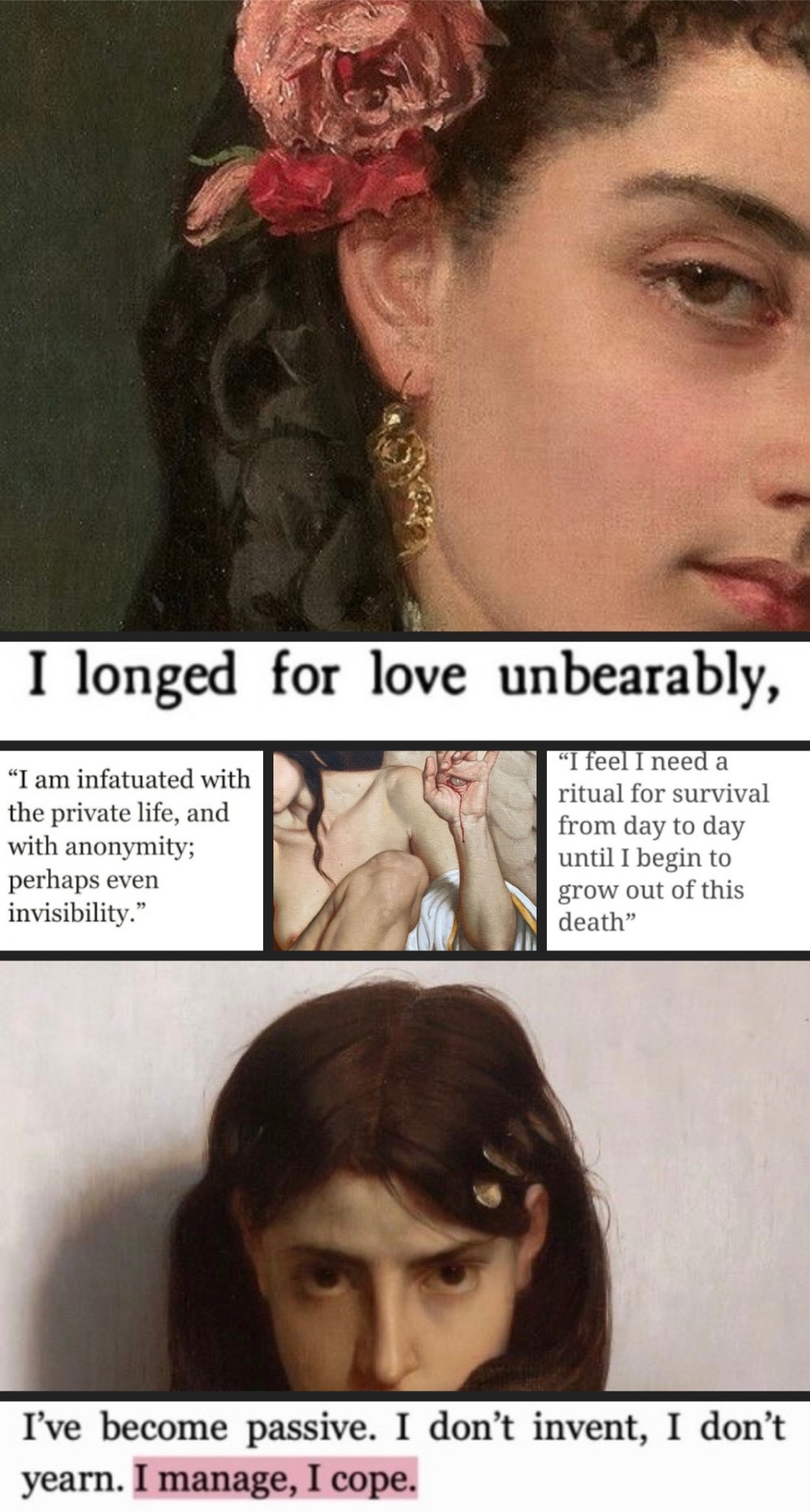
High fences of realization built on the liquid like foundation of my murky soul.
My desire for love when kept untouched grew into resentment towards myself.
Soothed only by the hands of death on the base of my spine stitching me back together I, her only leftover with words of comfort.
"Life goes on". Is its construction mantra.
Out of deaths lips its arbitrary, a stolen promise; like all the souls that it deemed unfit to be renovated.

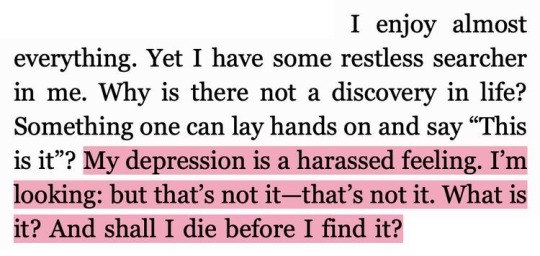
The hand of death on the base of my spine, on the back of my neck
it grounds me; I find comfort in it.
the way it caress me so lovingly, a threat of a postpartum psychotic mother to an oblivious child.
Death was never particularly appealing to me, it’s the thought of not existing
not now, not in the past, nor the future. to never be, with no trace whatsoever.
To cease to exist all together With no leftovers, nor broken lovers.


It’s not a constant desire, more of a lure, a forbidden love. A slow burn romance with a happy ending
One that I’ll never reach out to willingly but if it ever reached out to me then I know for sure that I’m not strong enough to reject it.
Because life loses its colors from time to time…
And that leaves me, like a person suffering from aphasia. I lose the ability to understand the point of it all…
I try hard to redefine everything, yet, I can’t express it not even when I reach for a semi-stable ground with all my words.
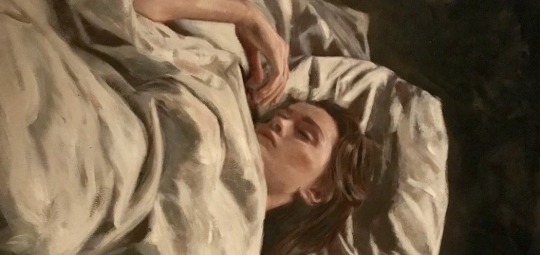

sensitive, i let life play me like an instrument, so responsive.
i increase the tone of whatever melody goes through me..
do it so i hurt anyone who loves me enough to listen. And because I can’t just fade…. And because I don’t have the upper hand…. I make sure to leave my mark, I make sure I have a way to I leave.
And then I choose not to.


•••
•Quotes: Christa Wolf / Joyce Carol Oates/ Sylvia Plath/Susan Sontag/ Virginia Woolf / Ocean Vuong / Molly Brodak/ Halsey
•Original context: Sinligh
•art reference:
1. Painting by John Bagnold Burgess (detail)
Painting by Roberto Ferri ( detail)
2. Painting by Émile Vernon (detail)
3. The Grasshopper by Jules Joseph Lefebvre. (detail)
4. Painting by Valeria Duca.
5. red" by Hei Shan.
6. Sleeping Beauty by William Oxer.
7. Halsey from her Ig post: iamhalsey (detail)
#sinligh poem#on death#on lost potential#existential#quotes#christa wolf#joyce carol oates#sylvia plath#susan sontag#virginia woolf#ocean vuong#molly brodak#halsey#tw depressing thoughts#existing#web weaving#word weaving#blotched words#compilation#art parallels#art compilation#art#dark academia#parallels#poetry#literature#feminsm#feminine rage#feminist#fuck the patriarchy
343 notes
·
View notes
Text
.. ne umut edeceği bir şey var, ne de kaybedeceği.
henry bauchau - oidipus yollarda
#kitap#edebiyat#blogger#felsefe#kitaplar#blog#kitap kurdu#charles bukowski#friedrich nietzsche#böyle buyurdu zerdüşt#oidipus#king oidipus#kral oidipus#oidipus kolonos'ta#mythos#midas#antigone#kassandra#christa wolf#virginia woolf#oğuz atay#james joyce#william shakespeare#hamlet#macbeth#ophelia#sophokles#tragedya#euripides#tiyatro
2 notes
·
View notes
Note
What are your favourite books.
Wuthering Heights by Emily Brontë
Jane Eyre by Charlotte Brontë
My Year of Rest and Relaxation by Ottessa Moshfegh
Dracula by Bram Stoker
Just Kids by Patti Smith
White Oleander by Janet Fitch
The Virgin Suicides/Middlesex by Jeffrey Eugenides
Atonement by Ian McEwan
Emma by Jane Austen
A Breath of Life by Clarice Lispector
White Is for Witching by Helen Oyeyemi
Rest & Be Thankful by Emma Glass
The Waves by Virginia Woolf
Little Women by Louisa May Alcott
The Great Gatsby by F. Scott Fitzgerald
Great Expectations by Charles Dickens
Gone Girl by Gillian Flynn
My Cousin Rachel by Daphne du Maurier
Cassandra: A Novel and Four Essays by Christa Wolf
Another Country by James Baldwin
Frankenstein by Mary Shelley
The Brothers Karamazov by Fyodor Dostoevsky
Picnic at Hanging Rock by Joan Lindsay
The Hours by Michael Cunningham
Carmilla by Joseph Sheridan Le Fanu
183 notes
·
View notes
Text

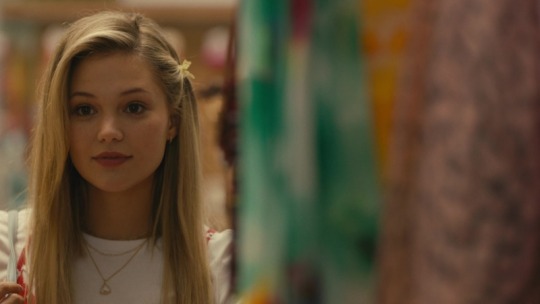



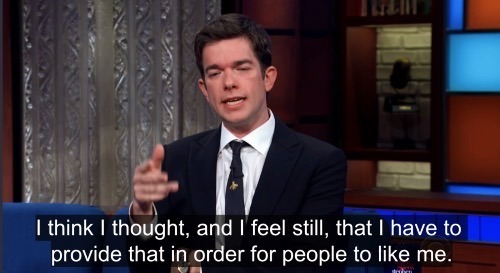

















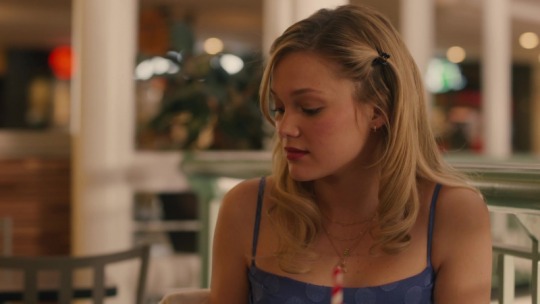


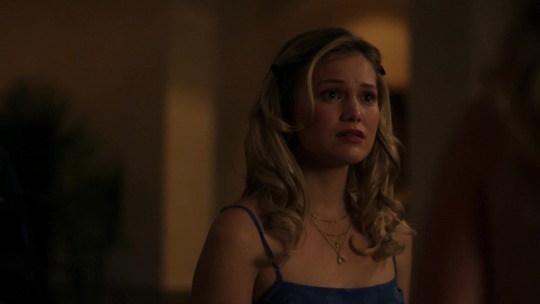





ARIA CONNOR: PERFORMANCE AND THE SELF
[ Lucky, Brittney Spears // My Cousin Rachel, Daphne du Maurier // John Mulaney // Ashley, Halsey // mirrorball, Taylor Swift // Lucky, Brittney Spears // Quite Nice People, Ida Maria // Unknown // Daffodil, Florence + The Machine // Cassandra: A Novel and Four Essays, Christa Wolf // Dream Girl Evil, Florence + The Machine // Tied Together with a Smile, Taylor Swift // Can’t Pin Me Down, MARINA // Anïs Nin // Virginia Woolf // Unknown // Harman Kaur // Summer Child, Conan Gray // State of Dreaming, MARINA // mirrorball, Taylor Swift ]
#for anyone except jo who sees this this isn't a cruel summer thing it's an oc thing kindly ignore me lol#aria connor#njabbic
14 notes
·
View notes
Photo


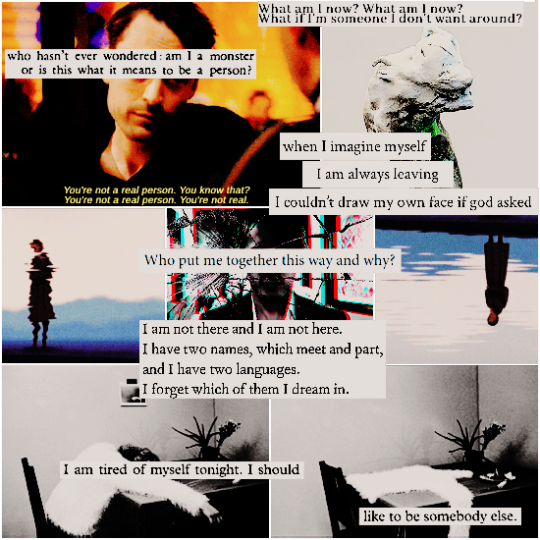


* ON IDENTITY EVOLUTION
AS EXPLORED IN THE GODLY TRILOGY
PART 1 : THE SELF ( I AM ALL AND MORE . )
Undertale / Everything Everywhere All At Once / Legion S1E8 : Chapter 8 / Mr. Robot S1E7 : Wh1ter0se.m4v / Gene Tierney with Portrait Masks, Horst P. Horst / Who Killed Markiplier / God Exits, Morningstar E. / Enfold, Henrik Uldalen / “Song of Myself”, Leaves of Grass, Walt Whitman / The Song of Achilles, Madeline Miller / The Book of Disquiet, Fernando Pessoa
PART 2 : THE BELIEVING ( I WANT TO BELIEVE . )
Heartfelt ( Promo package ) / Dissolving Into Nothing, RF Pangborn / Bi-Weekly, Claudia Keep / Self-Isolation, Irina An / Memento Mori, Crywank / Clarice Lispector / Upstream, Mary Oliver / The Waves, Virginia Woolf / Sue Zhao
PART 3 : THE UNSELF ( . . . )
Succession S3E7 : Too Much Birthday / Grzegorz Gwiazda / Jungho Lee / Who Killed Markiplier / Before, After, Briezdoodlez / Falling, Harry Styles / The Hour of the Star, Clarice Lispector / The Vault, Andrés Cerpa / Juliet ( I ), Sarah Certa / Counterpoint, Mahmoud Darwish / The Picture of Dorian Gray, Oscar Wilde
PART 4 : THE BECOMING ( I WANT TO JUST BE . )
Moon Knight S1E2 : Summon the Suit / Night in the Woods / Mid Air, Kirsten Sims / Feminine Stereotypes, Romina Bassu / Solitude, Llenia Tesoro / It Began Right Here, Danez Smith / Deerskin, Robin McKinley / Backwards, Warsan Shire / Cortège, Carl Phillips / Saying Your Names, Richard Siken
PART 5 : THE RESELF ( I AM ONLY I AND I LOVE I . )
Detective Kid / Legion S3E2 : Chapter 21 / Black Mirror: Bandersnatch / Midnight Mass S1E7 : Book VII: Revelation / Blooming, unknown / Who Killed Markiplier / Healing Series 31.08.2019, unspokengrief on tumblr / hannahlockillustration / Undertale / Cassandra: A Novel and Four Essays, Christa Wolf / Grandmother in the Garden, Louise Glück / Original Air-Blue Gown, The Mountain Goats / “Here I Am”, Songs from Under the River: A Collection of Poetry, Anis Mojgani / What the Living Do, Marie Howe

* ABOUT : This mega web weaving edit tells a short story about how any main character of the Godly Trilogy is a part of everything, everyone, everywhere. They are made of memories and dreams and visions. They are them, they are you, they are me. When this character is all and more to the Universe, though, who are they to themselves? They are all but truly what, exactly? No one and nothing knows who and what they are, not even the characters themselves. Upon this horrifying realization, there comes a fall, a going, a fading, gone. Who are they? What are they? I am? Am I? I don’t know. I don’t understand. I do not and I can not, and that is more than okay. There is still time and space for anyone to learn about themselves and love every single pieces that are part of them, and regardless of anything, they will know and remember this that they will always be more than good enough. Take a deep breath, child soul, lover of the sky and sea, bringer of light and darkness. You are you, and you are enough. I love you, always and always and always.
#*#[ made this several months ago as a special anniversary that has to do with the Godly Trilogy and I wish to share it on here too ]#[ identity is such an extremely important concept to me as it's heavily explored in the Godly Trilogy ]#[ as someone who still doesn't really know who they are ]#[ I hope this trilogy will help me find myself who is living better than I am now <3 ]
8 notes
·
View notes
Text
Domino effect meme but it's "president of the Second Polish Republic reluctantly re-appoiting Wincenty Witos for a 3rd term as Prime Minister with the backing of the Chejno-Piast majority, May 10th, 1926"-->Mädchen in Uniform: The Play (Christa Winsloe) & The Well of Loneliness (Radclyffe Hall) being translated into Polish and staged/published/having film premieres in 1932-36, also The Children's Hour, also the first lesbian novel po polsku, written by Virginia Woolf's translator, winning the most prestigious national literary award in...aw jeez 34-36, brain fog
It goes:
Witos's 3rd term/Chejno-Piast gov't considered the tripped switch or the cut wire that led to-->
Piłsudski's May Coup, 14th May 1926, consolidating the Sanacja regime, which became increasingly authoritarian;
In 1930, upon dissolution of the Sejm session (and temporary, situationally contingent diplomatic immunity), several anti-Sanacja delegates, mostly PPS-Lewica, including Adam Pragier and Adam Ciołkosz, are arrested on charges of conspiracy, acting against the interests of the state, etc.
In November 1931, their trial begins--these are the infamous Brest trials! Defendants are being charged per 1903 Russian criminal/penal code (kodeks karny), since the II RP hasn't codified one yet. This prompts the group of lawyers, judges, etc. who have been working on this project to fast-track its final draft, because the sentences are extraordinarily harsh, up to and including death
New 1932 criminal code, "kodeks Makarewicza"--by the way, heavily influenced by US criminal law, the leader of the commission made a special trip to the US to study our criminal justice system and uh. We inspired Sanacja, I think about this a lot!--codified as law Just In Time before sentences are handed down
It affects areas where Prussian criminal law and the 1811 ABGB (Austrian Code) were in place as well - including, e.g., statutes about homosexuality and ~obscenity clauses etc. re: discussing or alluding too explicitly to it in published materials
1932-36 is THE RENAISSANCE of gay modernism po polsku and especially gay modernism in translation. Thanks
#I can't believe the Brest trials gave us Dziewcięta w mundurkach which gave Jadzia Andrzejewska her career#The world is such a rich tapestry#Fever came back I am Dying scoob
5 notes
·
View notes
Text
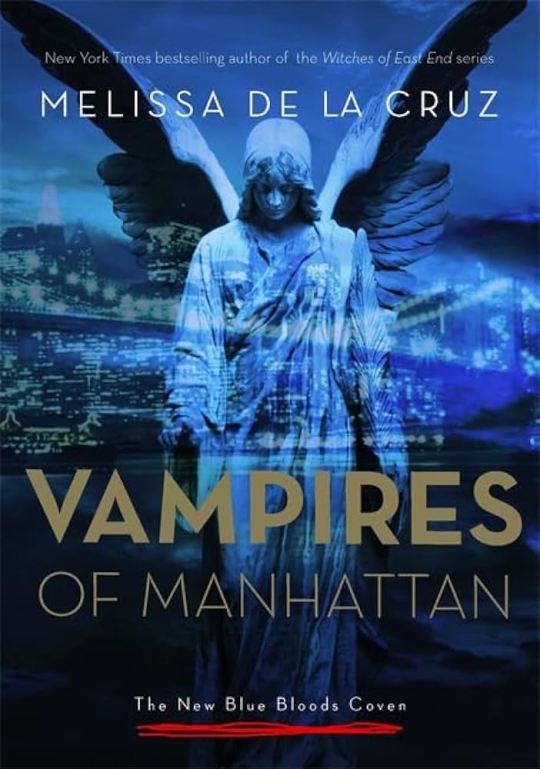
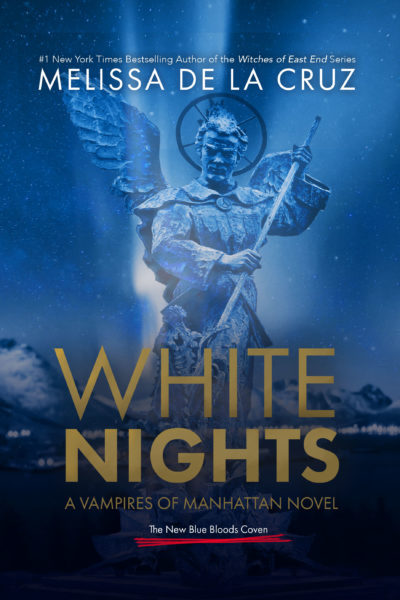
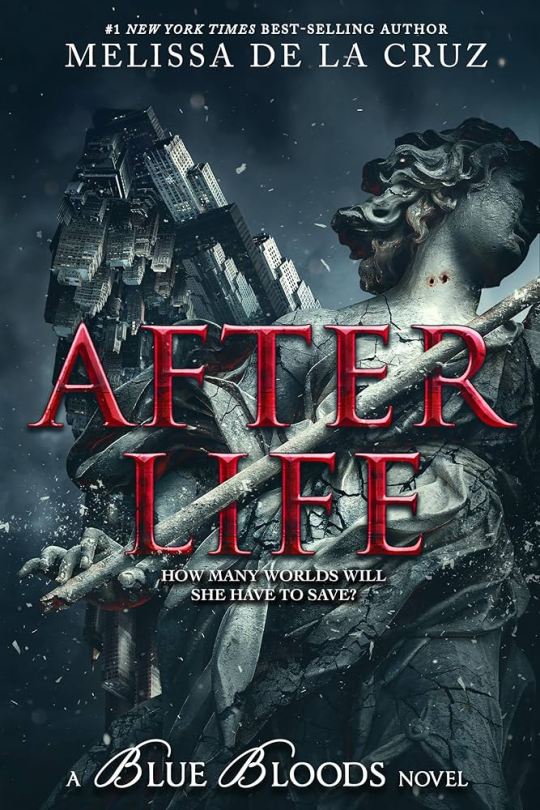
Antike (ca. 2000 vChr. bis ca. 500 nChr.)
Gilgamesch-Epos
Homer: Ilias, Odyssee
Äsop: Fabelsammlung
Caesar, Gaius Iulius: Der gallische Krieg
Vergil: Aeneis
Ovid: Metamorphosen
Tacitus, Publius Cornelius: Germania
Augustinus, Aurelius: Bekenntnisse
Herodot: Historien
Mittelalter (500-1500)
Beowulf
Murasaki Shikibu: Die Geschichte vom Prinzen Genji
1001 Nacht
Nibelungenlied
Gottfried von Straßburg: Tristan
Wolfram von Eschenbach: Parzival
Chaucer, Geoffrey: Die Canterbury-Erzählungen
Renaissance (1500-1600) und
Barock (1600-1720)
Boccaccio, Giovanni: Das Dekameron
Brant, Sebastian: Das Narrenschiff
Machiavelli, Niccolö: Der Fürst
More, Thomas: Utopia
Rabelais, Franois: Gargantua und Pantagruel
Cervantes Saavedra, Miguel de: Don Quijote
Grimmelshausen: Der Abentheurliche Simplicissimus Teutsch
Aufklärung (1720-1785)
Hobbes, Thomas: Leviathan
Fielding, Henry: Die Geschichte des Tom Jones, eines Findlings
Voltaire: Candide
Sterne, Laurence: Leben und Ansichten von Tristram Shandy, Gentleman
Rousseau, Jean-Jacques: Emile oder Über die Erziehung
Kant, Immanuel: Kritik der reinen Vernunft
Sturm und Drang (1765-1790)
Goethe, Johann Wolfgang von: Die Leiden des jungen Werthers
Bürger, Gottfried August: Münchhausen
Klassik (1786-1832)
Defoe, Daniel: Robinson Crusoe
Swift, Jonathan: Gullivers Reisen
Goethe, Johann Wolfgang von: Die Wahlverwandtschaften
Kleist, Heinrich von: Michael Kohlhaas
Romantik (1798-1835)
Arnim, Achim von/Brentano, Clemens: Des Knaben Wunderhorn
Grimm, Jacob und Wilhelm: Kinder- und Hausmärchen
Austen, Jane: Stolz undVorurteil
Eichendorff, Joseph Freiherr von: Aus dem Leben eines Taugenichts
Andersen, Hans Christian: Märchen
Gogol, Nikolai: Tote Seelen
Balzac, Honore de: Verlorene Illusionen, Glanz und Elend der Kurtisanen
Bronte, Charlotte: Jane Eyre
Bronte, Emily: Die Sturmhöhe
Huge, Victor: Die Elenden
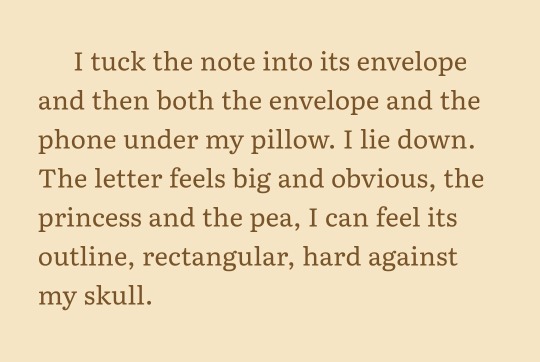
Biedermeier und Vormärz (1815-1848)
Heine, Heinrich: Buch der Lieder, Deutschland. Ein Wintermärchen
Büchner, Georg: Lenz
Droste-Hülshoff, Annette von: Die Judenbuche

Moderne (1850-1968)
Melville, Herman: Moby Dick
Beecher Stowe, Harriett: Onkel Toms Hütte
Keller, Gottfried: Dergrüne Heinrich
Dickens, Charles: Große Erwartungen
Dostojewski, Fjodor: Der Idiot
Tolstoi, Lew: Krieg und Frieden
Mark Twain: Tom Sawyers Abenteuer
Storm, Theodor: Der Schimmelreiter
Wilde, Oscar: Das Bildnis des Dorian Gray
Lagerlöf, Selma: Gösta Berling, Nils Holgersson
Fontane, Theodor: Effi Briest
Mann, Thomas: Buddenbrooks, Der Zauberberg
Proust, Marcel: Auf der Suche nach der verlorenen Zeit
Joyce, James: Ulysses
Babel, Isaak: Die Reiterarmee
Fitzgerald, Francis Scott: Der große Gatsby
Kafka, Franz: Der Prozess, Das Schloss
Woolf, Virginia: Mrs. Dalloway
Hesse, Hermann: Der Steppenwolf, Das Glasperlenspiel
Döblin, Alfred: Berlin Alexanderplatz
Remarque, Erich Maria: Im Westen nichts Neues
Roth, Joseph: Hiob, Radetzkymarsch
Traven, B.: Das Totenschiff
Fallada, Hans: Kleiner Mann - was nun?
Mann, Klaus: Mephisto
Steinbeck, John: Früchte des Zorns
Orwell, George: Farm der Tiere
Machfus, Nagib: Die Midaq-Gasse
Camus, Albert: Die Pest
Greene, Graham: Der dritte Mann
Dürrenmatt, Friedrich: Der Richter und sein Henker
Nabokov, Vladimir: Lolita
Tomasi di Lampedusa, Giuseppe: Der Leopard
Frisch, Max: Homo Faber
Aitmatow, Tschingis: Dshamilja
Grass, Günter: Die Blechtrommel
Solschenizyn, Alexander: Ein Tag im Leben des Iwan Denissowitsch
Wolf, Christa: Der geteilte Himmel
Bulgakow, Michail: Der Meister und Margarita
Garcia Märquez, Gabriel: Hundertjahre Einsamkeit
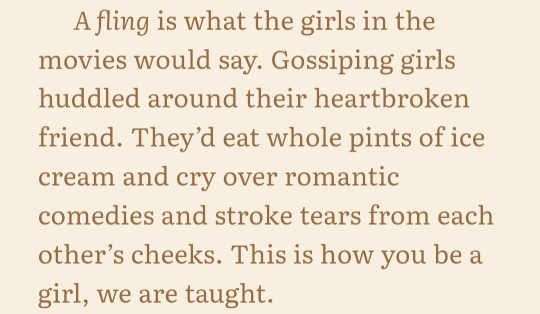
Gegenwart (ab 1968)
Lenz, Siegfried: Deutschstunde
Kertesz, Imre: Roman eines Schicksallosen
Eco, Umberto: Der Name der Rose
Jelinek, Elfriede: Die Klavierspielerin
Kundera, Milan: Die unerträgliche Leichtigkeit des Seins
Morrison, Toni: Menschenkind
Vargas Llosa, Mario: Das Fest des Ziegenbocks
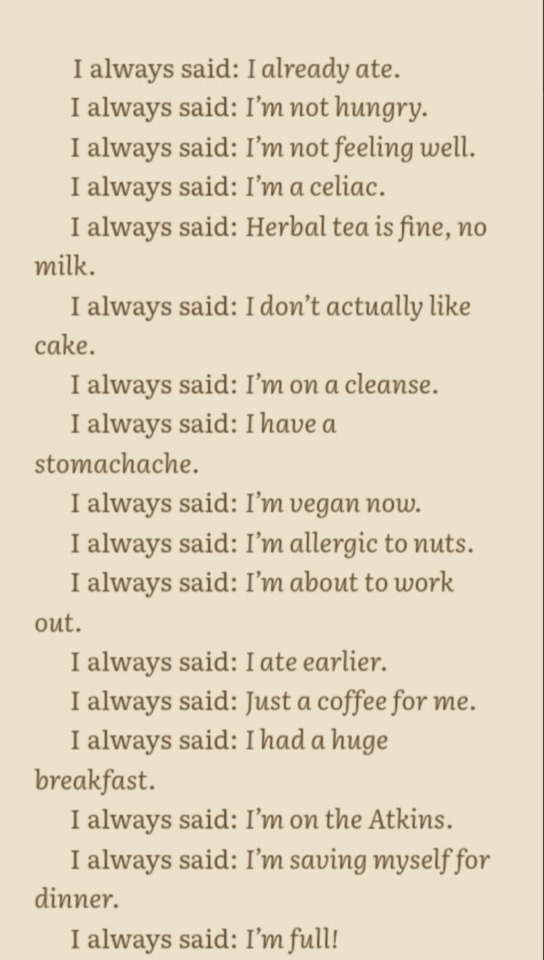
0 notes
Text
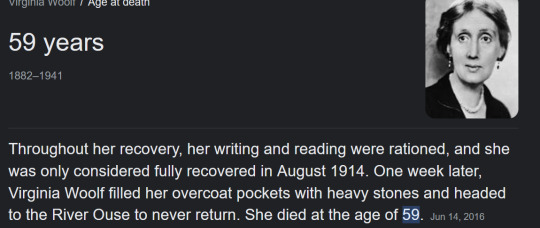

THOUGHT - VIRGINIA WOOLF - WAS - AN - AMERICAN
ACTRESS - GODDESS - AND - BLONDE - INTENSE YES
IN - ACTING - BUT - WHY - THE - LAST - NAME - WOOLF
SHE's - ENGLISH - READ - 1ST - FLOOR - SHE - LOVED
HUNTING - 4 - TREASURES - IN - THE - LIBRARY - WAS
THINKING - MIAMI - LIBRARY - SHE's - NOT AMERICAN
WOOLF - FILLED - HER - COAT - AT - LEAST - WITH
HEAVY - ROCKS - AND - DROWNED - HERSELF - A
RIVER - IN - ENGLAND - AGE 59 - LIKE - ME - LIKE
CHERIE GIL
VIRGINIA - WAS - 'S' - ABUSED - BY - HER - HALF -
BROTHERS - MEANING - THEY - TOUCHED - HER
BODY - BUT - LOOKING - AT - HER - FACE - SHE
WAS - LIKE - JANE AUSTIN - REAL - VIRGINS IT
AFFECTED - HER - WHOLE - LIFE
SHE - RECEIVED - INHERITANCE - FR - HER
AUNT - 2,500 LBS - AND - IT - HELPED HER
BECOME - A - WRITER
IF - SHE - WORKED - WITH - CHILDREN
INSTEAD - IT - WOULD - HAVE HEALED
ENGLAND - COLD - WEATHER - DESPAIR
OF - NOT - SEEING - SUNLIGHT - DURING
WINTER - SHE - KILLED - HERSELF
ROMANTICS - WOULD - LOVE - OLD
BOOKSTORES - NEAR - COVENT GARDEN
FINDS - LIKE - 1ST - 100 ISSUED - BOOKS
EVERYONE - LEARNT - BALLET
MY - TREADMILL - WORKOUT - NOT WALK
NOT - RUN - SOME - ELEVATION - BUT
DANCING - KOREAN - ROCKERS - AND
CARDIO - BOXING - CHRISTA DI PAOLO
LEILAH ISAAC - THE - NEW - ZUMBA
LOUSY - MUSIC - HAS - MADE - BODY
WARMER - SO - NOT - FREEZING - ME
SHOULD - HAVE - DONE - IN - MANHATTAN
VIRGINIA - DIDN'T - QUITE - EXERCISE - SO
DESPAIR - FR - COLD - SNOW - GRAY DAYS
DREADFUL - WINTER - THEY - TOUCHED
HER - BODY - AS - A - VIRGIN - HER HALF
BROTHERS - DID - HER - PARENTS - YES
BELIEVE - HER
SUICIDE - INDEED - MY - PINK - EARPLUGS
0% - AGAIN - LEFT - MY - BLK - ONES - SO
ONLY - WIRED - EAR PLUGS - HAVE - 2 - YES
THINK - SHOULD - I - GO
SKIPPING - SCRUBBING - AT - BOX VAULT
SETTING - TENT - B 4 - SLEEPING - EARLY
FINISHING - BOOK - EMAIL - SENT - GIVING
ME - 1 MONTH - MORE - 2 - READ - MY - 1ST
EMAIL - MIAMI - DADE - EMAILED - TWICE
OR - 3 TIMES - HOLIDAY - SCHEDULE - AND
ENROLL - ONLINE - HERE
ENOUGH - IS - ENOUGH - FIRST - THING - I
DID - WAS - ENROLL - THEY'RE - OVER
MY - TRANSCRIPTS - NOT - SENT THUS
NO - TRANSCRIPTS - DONATING $9.40
THAT - PARCHMENT - GOT - BUT - ME
KNOWS - CAN - ONLY - DO - ONLINE
WITHOUT - DEGREE - NO - TRANSCRIPT
AS - AGE 58
THUS - UNIVERSITY - OF - PARIS
UNIVERSITY - OF - ENGLAND - MY
HARVARD - LAWYERS - WILL HELP
SENIOR - YEAR - ONLY
ALGEBRA - 1ST - B - SINCE - KID
PRE-SCHOOL - PE - JUNIOR YEAR
B - WHEN - PERFECT - ATTENDANCE
WITH - TENNIS - RACQUET - I GET - A
THEY - LIED - PERFECT - SCORE - IN
EXAMS - PERFECT - ATTENDANCE &
TENNIS - ACED - AND I - GOT - A - B
MOST LIKELY - TAKING - GED - INSTEAD
BECAUSE - LOST - TRANSCRIPTS - NOT
$10,000 - MONTHLY - SO - TAKING - GED
GENERAL - EDUCATION - EXAM - THUS I
CAN - GIVE - 2 - OXFORD - AND - PARIS
STRAIGHT - A's - MY - WHOLE - LIFE
JUNIOR - PE - B - GRADE
ALGEBRA - SENIOR - B - ALSO
SO - NO - MORE - TRANSCRIPTS - 4 ME
HARVARD - LAW - 2 - HELP - ME
SO - CAN'T - HAVE - DEGREE - ONLINE
INSTEAD - SEWING - BY - ONLINE
$19.99
COOKING - BAKING - ONLINE
PREPARING - 2 - LEAVE
HAPPY - HOLIDAYS - KOREA - USA
0 notes
Text


5 Minutes That Will Make You Love Mezzo-Sopranos
January 5, 2022
In the past we’ve chosen the five minutes or so we would play to make our friends fall in love with classical music, piano, opera, cello, Mozart, 21st-century composers, violin, Baroque music, sopranos, Beethoven, flute, string quartets, tenors, Brahms, choral music, percussion, symphonies, Stravinsky, trumpet, Maria Callas, Bach and the organ.
Now we want to convince those curious friends to love mezzo-sopranos, the warm-toned bringers of humanity to opera. We hope you find lots here to discover and enjoy; leave your favorites in the comments.
In the past we’ve chosen the five minutes or so we would play to make our friends fall in love with classical music, piano, opera, cello, Mozart, 21st-century composers, violin, Baroque music, sopranos, Beethoven, flute, string quartets, tenors, Brahms, choral music, percussion, symphonies, Stravinsky, trumpet, Maria Callas, Bach and the organ.Now we want to convince those curious friends to love mezzo-sopranos, the warm-toned bringers of humanity to opera. We hope you find lots here to discover and enjoy; leave your favorites in the comments.
◆ ◆ ◆Susan Graham, mezzo-soprano
Why should you love mezzos? We’re the opera world’s salt of the earth. We’re the mother, the boyfriend, the impish page. We’re the sister, the princess, sometimes the goddess. OK, we’re also occasionally the witch!
With apologies to my soprano sisters, our lower tessitura offers a warmer tone, as well as words that are more discernible in a range closer to speech. We’re slightly more relatable, if you will. We’re the viola, sometimes the cello, and we often strive for that richness and comfort. The following is an example of glorious vocalism by one of my idols and mentors: Christa Ludwig. She taught me Octavian, and her recordings taught me Mahler, Strauss, Schubert and Wagner. Here she is spinning out Brahms, accompanied by Leonard Bernstein.
◆ ◆ ◆J’Nai Bridges, mezzo-soprano
I would play an aria almost everyone has heard many times: “L’amour est un oiseau rebelle” — the “Habanera” from “Carmen.” The clarity and beauty of Grace Bumbry’s tone and the playfulness of her expression made me instantly fall in love, and I can imagine it would at the very least pique the interest of a newcomer. (The music is more than enough, but watching her sing it on film would truly leave anyone hooked.)
◆ ◆ ◆Kayleigh Butcher, mezzo-soprano
When I was in high school, my choir teacher played a Grace Bumbry CD. I loved it so much that I took it home with me. This piece was one of the few arias I had heard at that point that just sounded fun to sing. Her voice is so buoyant and light, yet also strong and fervent. And her breathing technique is so skilled at handling Handel’s long, melismatic lines. Her expression sounded so easy and free. It all spoke to me, so intensely, at a young age.
◆ ◆ ◆Zachary Woolfe, Times classical music editor
These five minutes changed my life. When I was about 10, I somehow got my hands on a CD of songs and arias featuring Marian Anderson. I played her “Ave Maria” again and again, with its halo of static hovering around her mellow tone, an emissary of beauty from long ago. It was how I fell in love with classical vocalism, and with opera. As always with Anderson, the singing is dignified, even decorous. But in her steady, intense swells of volume, you can’t help but feel the power of belief, breath, body. Sensuality is not absent from her artistry.
◆ ◆ ◆Marilyn Horne, mezzo-soprano
There were many singers who influenced me and whom I tried to emulate: Risë Stevens, Janet Baker, Renata Tebaldi, Rosa Ponselle, Victoria de los Ángeles, Conchita Supervía. But I think the one I really paid the most attention to when I was 18, 19, 20, was Ebe Stignani. I did a lot of research on her, and I played her records constantly. I adored her particular legato, which was just extraordinary in “Orfeo,” and the “Samson et Dalila” arias.
◆ ◆ ◆Cecilia Bartoli, mezzo-soprano
When I was a student, I used to listen to and admire a lot one of the very great Rossini specialists, Marilyn Horne. I especially appreciated and studied her legendary interpretations of male characters, such as Malcolm in “La Donna del Lago” and Arsace in “Semiramide.” In 1988 she recorded something different: Vivaldi’s “Orlando Furioso.” I was spellbound by the vocal fireworks, and Horne’s interpretation was the initial inspiration for my later Vivaldi projects. Thank you, dear Marilyn!
◆ ◆ ◆Matthew Epstein, vocal coach and impresario
I can hear this performance in my head: It was the first cut on the album “Presenting Marilyn Horne,” which came out in 1965. And if there was a part that fully suited her, it was Isabella in “L’Italiana in Algeri.” She was still called a soprano in those days, and there was the combination of that very strong lower register, even from the start, with a lightness, especially in this early recording. She goes way up in the cadenza to the high C. There’s lightness and flexibility to the sound, and dynamic variation — her amazing use of soft dynamics. She sings with such sweetness but also so much strength.
◆ ◆ ◆Jamie Barton, mezzo-soprano
When I think mezzo, the first name that comes to mind is Marilyn Horne. Her recordings of florid arias by Rossini, Vivaldi and Handel are widely known, but this gorgeous aria from Ambrose Thomas’s “Mignon” is well worth a trip off the beaten path. In under five minutes, you have a scena that is chock-full of beautiful long lines and gargantuan leaps that challenge the extremes of her seemingly limitless voice.
◆ ◆ ◆Amirtha Kidambi, composer and vocalist
A classical mezzo-soprano who later defected to free jazz, I was a contrarian who avoided the most beloved repertoire. I gravitated to what was then considered niche, digging into zarzuela and Spanish and Latin American art song, which brought me into contact with the rich voice of Teresa Berganza. She is known for interpretations of Rossini and Mozart, but when I was knee-deep in Manuel de Falla’s “Siete Canciones Populares Españolas,” I studied Berganza’s recordings closely, mesmerized by her delicacy and sensitivity to the folkloric ornamentation. In this live performance from 1960, “Polo” showcases her brilliant coloratura, moving seamlessly in and out of brute-force chest voice.
Back to free jazz, when I met my musical hero Cecil Taylor, the virtuosic improvising pianist, I told him I was a vocalist. He took my hands in his and spoke low and close. Though I couldn’t grasp every word, he clearly repeated “Teresa Berganza” in a raspy whisper. I felt a cosmic vibration in our hands and shook my head vigorously, grinning in agreement.
◆ ◆ ◆Denyce Graves, mezzo-soprano
It may be partly because I’m a huge Cecilia Bartoli fan, partly because it is just so heartbreakingly glorious, and partly because it’s a challenge to sing well. But I love this aria. It challenges your stamina in terms of breath control, line, trill and the ability to convey deep emotional sentiment. You need fire in your belly and a core of steel and calm to be successful.
◆ ◆ ◆Javier C. Hernández, Times classical music and dance reporter
Some mezzos specialize in so-called trouser roles, assuming the identity of young male characters. One of the best known trouser parts is Cherubino, the mischievous teenage page in Mozart’s “Le Nozze di Figaro.” In this recording, Frederica von Stade, a classic Cherubino, sings with luster and comedic flair.
◆ ◆ ◆Anthony Tommasini, former Times chief classical music critic
Many mezzos can sound a little forced trying to bring chesty power to their low range. Not the great Shirley Verrett, as in this thrilling account of “O don fatale” from Verdi’s “Don Carlo.” Her deep, rich lower voice has smoldering natural power and textured beauty. Yet during soaring flights, she tosses off top notes that any soprano would covet. (It’s no surprise that she also took on major soprano roles.) Combining vocal magnificence with dramatic intensity, Verrett’s Princess Eboli sounds impassioned and remorseful in cursing the allure of her own beauty.
◆ ◆ ◆David Allen, Times writer
“I am lost to the world,” this song begins, even though the music can be relied upon to pull me back into it — consoling on the darkest of nights, or in the deepest of griefs. With its winding English horn and ethereal mezzo line, never more magically sung than by Janet Baker in 1967, Mahler’s shortest masterpiece is a love song, though a forlorn one. Our singer is lost to the world, and she insists that she is content with that, as her voice takes flight. But there are few simple joys here — rather a profound ambivalence. Suspensions linger everywhere, their exquisite agonies taking time to resolve. Is this the bliss of solitude? Heaven? Love? No, the final words reveal: It is the rapture of song.
◆ ◆ ◆Kamala Sankaram, composer
For me, the beauty of the mezzo voice is synonymous with Mahler. And while I do have a soft spot for the “Rückert-Lieder” (“Um Mitternacht,” in particular), the piece that first moved me, introducing me to the warmth of mezzos, is his “Kindertotenlieder.” In “Nun will die Sonn’ so hell aufgeh’n,” the first song in the cycle, the sparseness of the orchestration allows the simplicity and purity of the voice to really shine. The beautiful legato of Janet Baker’s sound is colored by the emotion she wrings out of the text. It gets me every time.
◆ ◆ ◆Seth Colter Walls, Times writer
Emmerich Kalman’s operetta “The Duchess of Chicago” was a hot ticket in Vienna in 1928. Kalman drew from his intimate knowledge of Hungarian dances and what he was able to learn of cutting-edge American styles like the Charleston. Among the numbers is this tune, which introduces Mary, the duchess of the title, who buys and sells European potentates at will. While the part was originally written for a soprano, a mezzo like Julia Bentley can emphasize the ironies of the libretto. Mary already seems to know that money isn’t everything — even as the dollar-fueled flexing of Americana is heard in the rhythm.
◆ ◆ ◆Jennifer Higdon, composer
One of the joys of being a composer is exploring performers’ gifts before writing for them. Occasionally, I encounter a beauty and skill that takes my breath away, making me pause with wonder and admiration. Such performances become springboards of inspiration. I recently experienced this while listening to the mezzo-soprano Sasha Cooke, heard here in a lullaby and conveying the sound of effortless beauty and calm from a most artful voice.
◆ ◆ ◆Joshua Barone, Times editor
In opera, the spotlight tends to gravitate toward sopranos. But there have been exceptions, mostly in France, of leading female roles for mezzo-sopranos: the Carmens and Dalilas of the repertory. Among my favorites are those written by Berlioz, like Didon of “Les Troyens” and Marguerite of “La Damnation de Faust.” His song cycle “Les Nuits d’Été,” which has been adapted for different voice types, also sounds best in the mezzo tessitura. Hear how the deeper, rich-bodied lyricism in “Le spectre de la rose” complements the orchestration — at its most delicate, with pattering winds and pizzicato strings — then blossoms into a beaming high note with a mezzo-soprano’s trademark versatility.
◆ ◆ ◆Michael Cooper, Times editor
Some of the most intoxicating music in Wagner’s “Tristan und Isolde” is given not to the doomed lovers, but to Brangäne, Isolde’s hapless maid. Listen to Christa Ludwig sing her song of warning in the second act: standing watch over a tryst, her rich, otherworldly mezzo floats above the ethereal colors of the orchestra. Its spell is all the more powerful because of how it unfolds. The audience, which has just listened to an ecstatic, frenzied love duet, suddenly hears Brangäne’s distant warning as she tries in vain to pierce the rapturously beautiful music of their passion.
◆ ◆ ◆Joyce DiDonato, mezzo-soprano
One of the great mysteries of classical music is how composers can craft the most achingly beautiful music from the most tragic of emotions, simultaneously evoking pure sadness and astonished tranquillity, and perhaps even inviting acceptance. It takes a special artist to channel music in such a mystical way, and there have been few better marriages than that of Franz Schubert and Janet Baker. In this song, written in 1816, a mother sings a simple lullaby to her baby son, who has just died. Listen as Janet’s voice comforts, cries, calms and loves.
◆ ◆ ◆
The post 5 Minutes That Will Make You Love Mezzo-Sopranos appeared first on New York Times.
0 notes
Photo
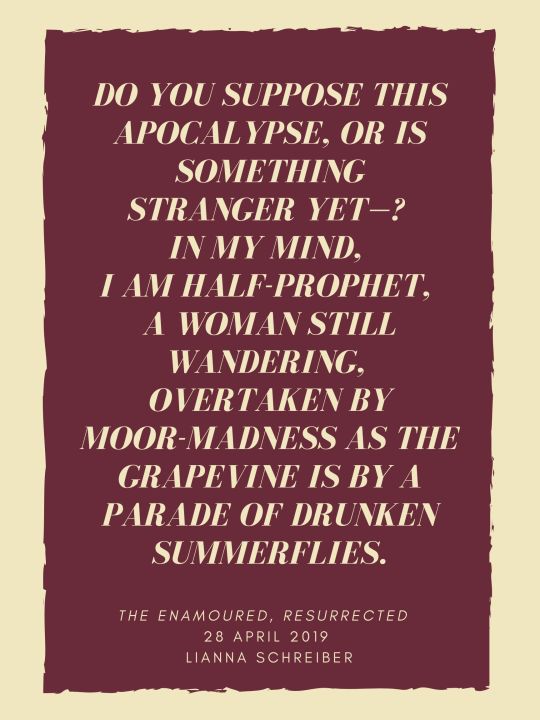
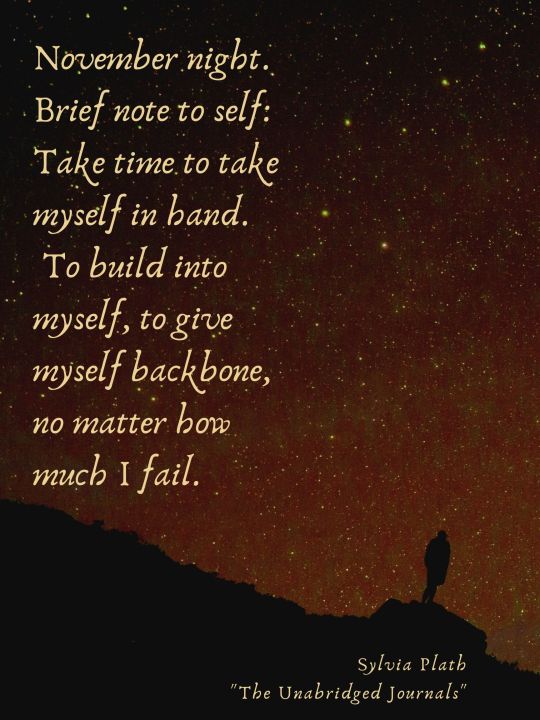
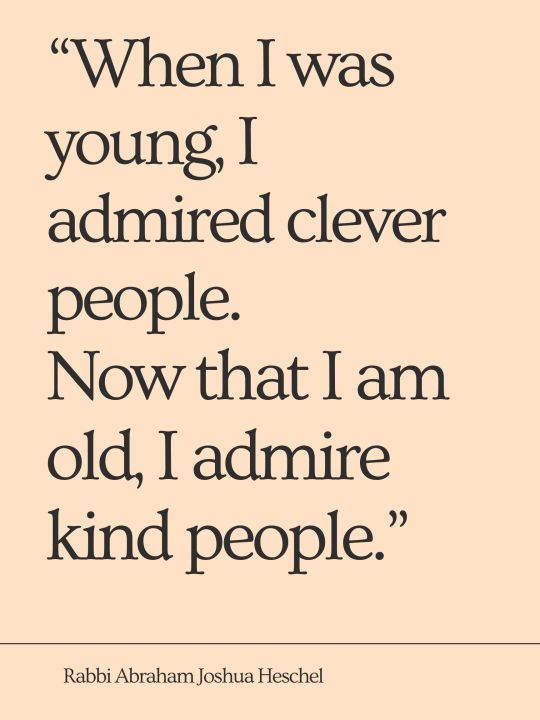
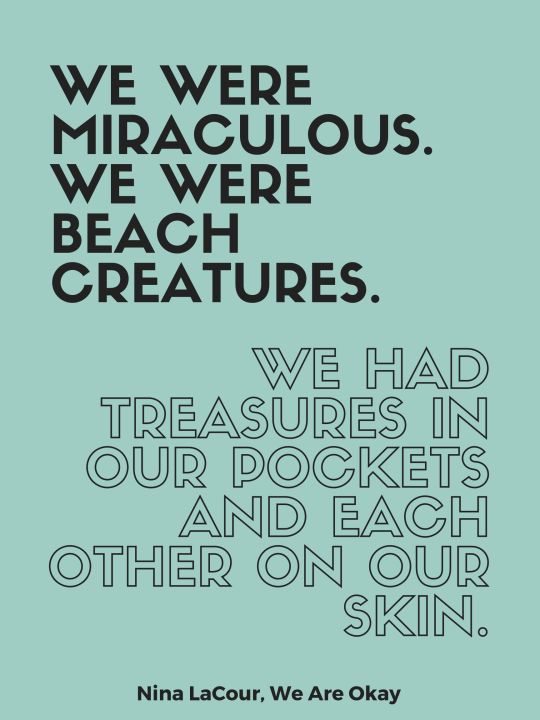


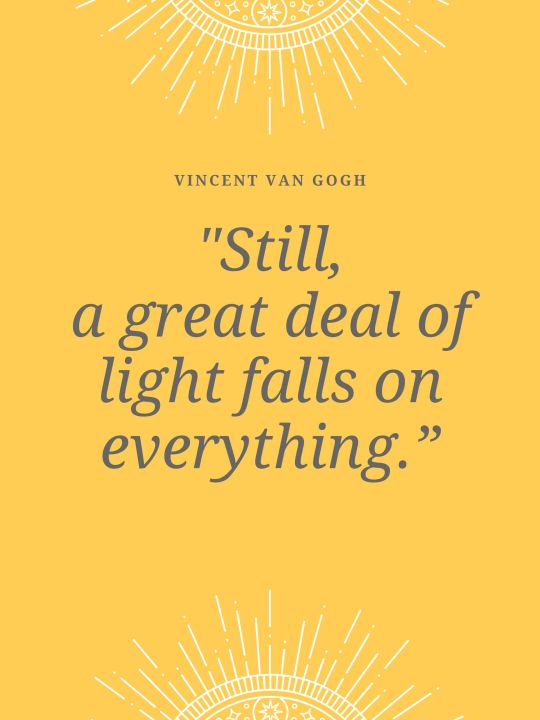
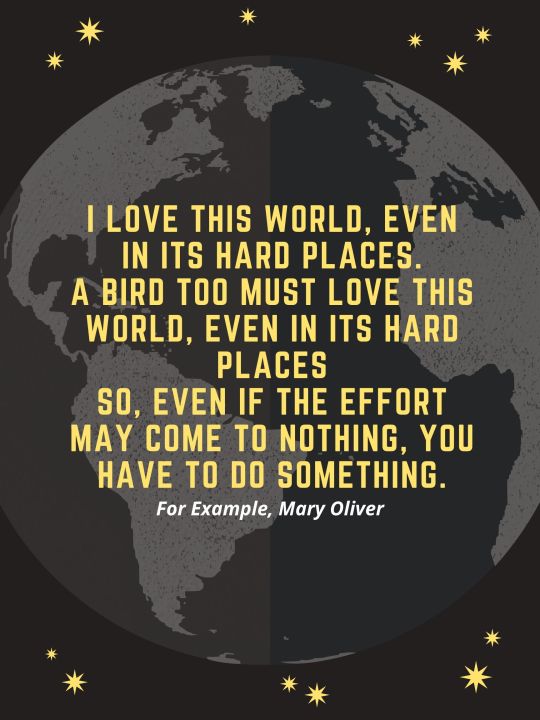

testing out some software by making posters for my favorite short quotes
#mumblings#vincent van gogh#keith haring#margaret atwood#christa wolf#nina lacour#lianna schieber#abrahram joshua heschel#virginia woolf#sylvia plath
27 notes
·
View notes
Text
Later Günderrode quietly told Bettine that one day she intended to give some thought to the question of what it implied that the most serious and painful things between human beings were expressed in the guise of a masquerade, and of whether so many smiling mouths did not conceal some grave malady on the part of society as a whole.
-- Christa Wolf, No Place on Earth
4 notes
·
View notes
Text
annabella gioia: "l'università delle donne" (donzelli, 2021)
annabella gioia: “l’università delle donne” (donzelli, 2021)
Annabella Gioia
L’università delle donne.
Esperienze di femminismo a Roma (1979-1996)
Collana Saggine, n. 359
pp. XXVIII-140, con un ottavino in b/n fuori testo
«Quella dell’Università delle donne è una storia ancora poco raccontata, capace di restituirci la creatività e l’intelligenza di tante donne d’idee. Un progetto ambizioso, nato dal desiderio di esplorare la cultura alla ricerca di un…
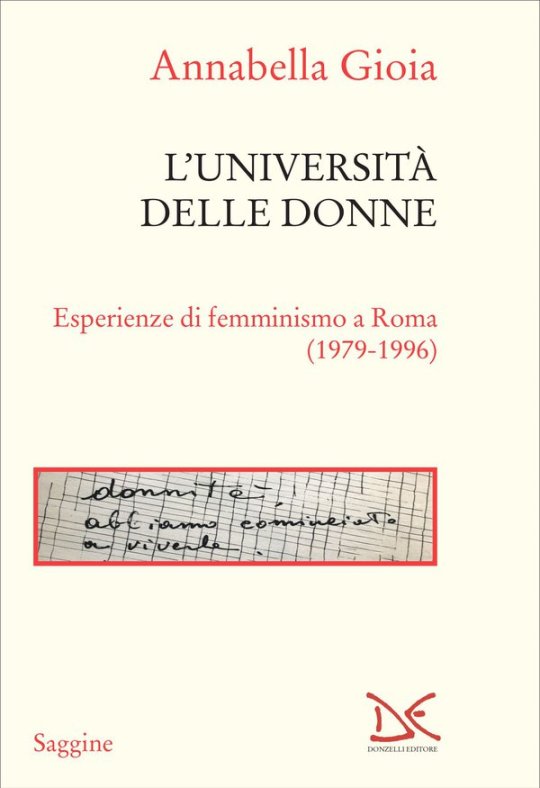
View On WordPress
#1979#Annabella Gioia#Anni &039;70#anni Settanta#archivio#Centro culturale Virginia Woolf#Christa Wolf#collana Saggine#critica femminista#differenza sessuale#documentazione#Donzelli#femminismo#femminismo a Roma#L&039;università delle donne#Luce Irigaray#Michi Staderini#movimenti politici#università#Università delle donne#women’s studies
1 note
·
View note
Note
do you have any compilations about stars? tysm <3
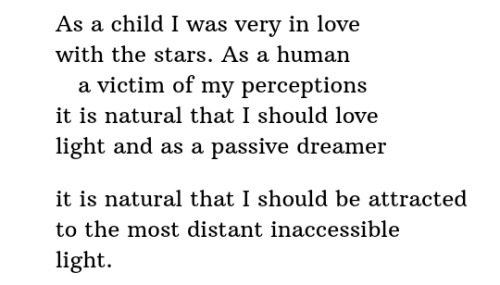
— eileen myles, “the irony of the leash” from i must be living twice: new and selected poems 1975 - 2014
“far as stars i see and let the world go sway.”
— eimear mcbride, the lesser bohemians

— lisel mueller, “necessities”
“night. the stars and the moon impassive, undisturbed, eternal. a little of their impassivity flows into me. they are consoling. they reduce the intensity and acuteness of human sorrow. i feel less strangled, less oppressed.”
— anaïs nin, from the diary of anaïs nin, vol. 3: 1939-1944

— henry dumas, knees of a natural man: the selected poetry of henry dumas; “image”
“thee like the classic quality of a star:
a little way from warmth, a little sad,
delicately lovely to adore—”
— gwendolyn brooks, from selected poems

— ingeborg bachmann, in the storm of roses; “my bird” (tr. mark anderson)
“are we dreaming? do i have only to pronounce a certain name, so that everything will come together, small miracles will happen, and i will be drawn deeper and deeper into an enchantment? the stars sing, it is a high whirring sound; i will not try to convince anyone, but we heard it that night.”
— christa wolf, cassandra: a novel and four essays (tr. jan van heurck)
“she stood there: she listened. she heard the names of the stars.”
— virginia woolf, from mrs dalloway
“…heart-piercing was her song as the song of the lark that rises from the gates of night and pours its voice among the dying stars…”
— j.r.r. tolkien, the silmarillion

— anne carson, autobiography of red
“i’d like to step out of my heart and be under the great sky. i’d like to pray. and surely one of all those stars must still exist.”
— rainer maria rilke, the poetry of rilke; “lament” (tr. edward snow)
“i have lost all that i was. i must find it again, with the poor, lost stars. we must each find our ways to power, and how to hold it in our hands.”
— catherynne m. valente, the orphan’s tales: in the night garden

— e.e. cummings, from "dive for dreams”
#ask#compilation#mon doux clair de lune#elenath#this was quite difficult to keep short / manageable.... i love the stars <3
834 notes
·
View notes
Photo
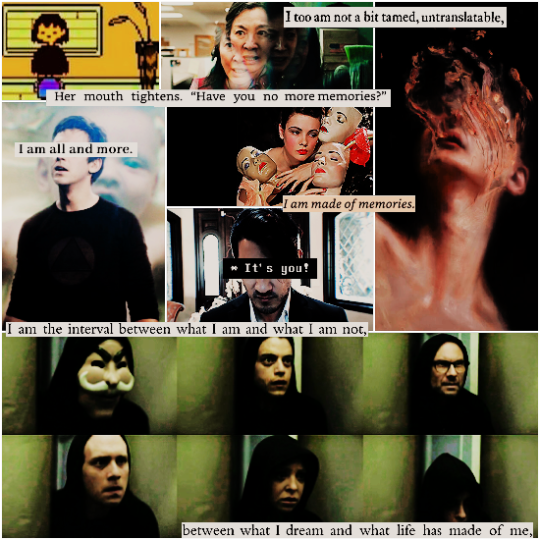
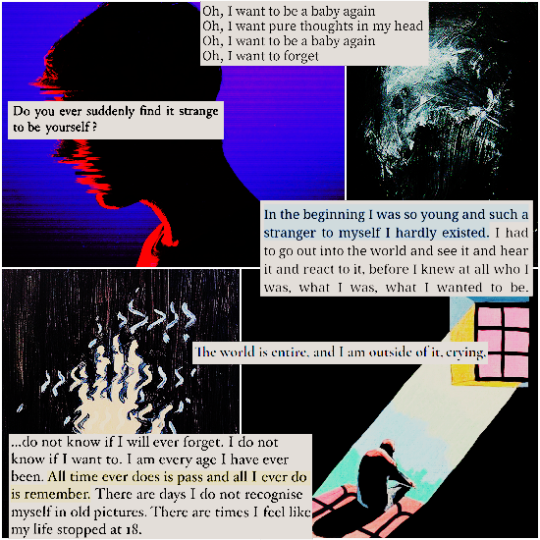
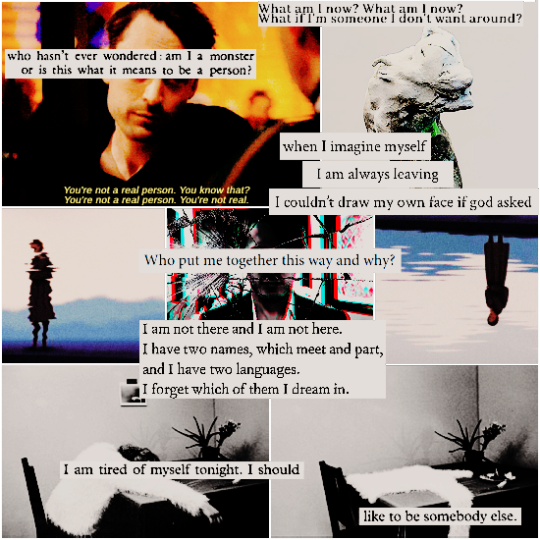
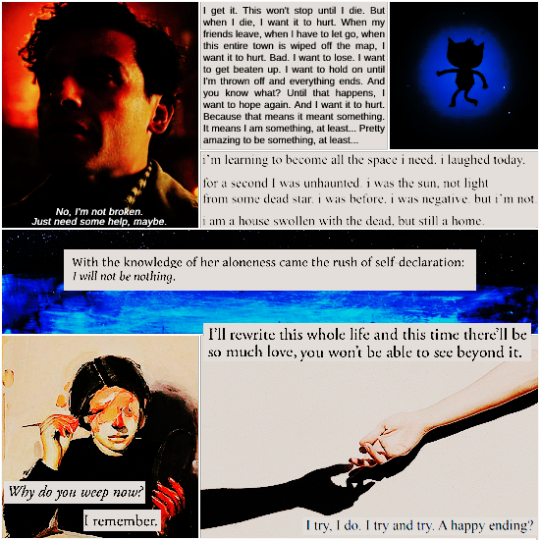
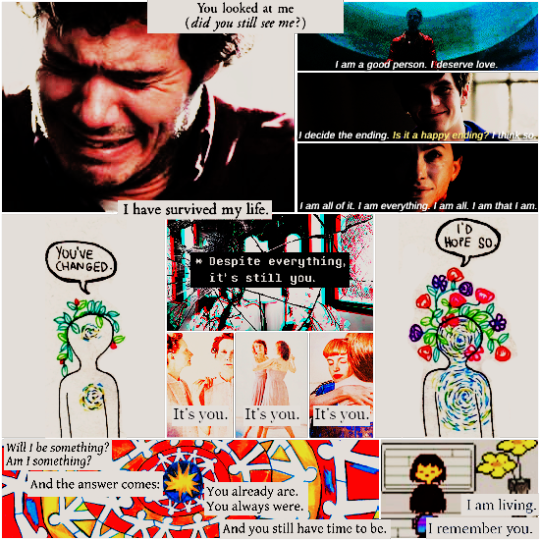
* [ REDACTED ] ON IDENTITY EVOLUTION //
PART 1 : THE SELF ( I AM ALL AND MORE . )
Undertale / Everything Everywhere All At Once / Legion S1E8 : Chapter 8 / Mr. Robot S1E7 : Wh1ter0se.m4v / Gene Tierney with Portrait Masks, Horst P. Horst / Who Killed Markiplier / God Exits, Morningstar E. / Enfold, Henrik Uldalen / “Song of Myself”, Leaves of Grass, Walt Whitman / The Song of Achilles, Madeline Miller / The Book of Disquiet, Fernando Pessoa
PART 2 : THE BELIEVING ( I WANT TO BELIEVE . )
Heartfelt ( Promo package ) / Dissolving Into Nothing, RF Pangborn / Bi-Weekly, Claudia Keep / Self-Isolation, Irina An / Memento Mori, Crywank / Clarice Lispector / Upstream, Mary Oliver / The Waves, Virginia Woolf / Sue Zhao
PART 3 : THE UNSELF ( . . . )
Succession S3E7 : Too Much Birthday / Grzegorz Gwiazda / Jungho Lee / Who Killed Markiplier / Before, After, Briezdoodlez / Falling, Harry Styles / The Hour of the Star, Clarice Lispector / The Vault, Andrés Cerpa / Juliet ( I ), Sarah Certa / Counterpoint, Mahmoud Darwish / The Picture of Dorian Gray, Oscar Wilde
PART 4 : THE BECOMING ( I WANT TO JUST BE . )
Moon Knight S1E2 : Summon the Suit / Night in the Woods / Mid Air, Kirsten Sims / Feminine Stereotypes, Romina Bassu / Solitude, Llenia Tesoro / It Began Right Here, Danez Smith / Deerskin, Robin McKinley / Backwards, Warsan Shire / Cortège, Carl Phillips / Saying Your Names, Richard Siken
PART 5 : THE RESELF ( I AM ONLY I AND I LOVE I . )
Detective Kid / Legion S3E2 : Chapter 21 / Black Mirror: Bandersnatch / Midnight Mass S1E7 : Book VII: Revelation / Blooming, unknown / Who Killed Markiplier / Healing Series 31.08.2019, unspokengrief on tumblr / hannahlockillustration / Undertale / Cassandra: A Novel and Four Essays, Christa Wolf / Grandmother in the Garden, Louise Glück / Original Air-Blue Gown, The Mountain Goats / “Here I Am”, Songs from Under the River: A Collection of Poetry, Anis Mojgani / What the Living Do, Marie Howe

* ABOUT : This mega web weaving edit tells a short story about an all-encompassing and multidimensional being known as [ REDACTED ] who is part of everything, everyone, everywhere. They are made of memories and dreams and visions. They are them, they are you, they are me. When [ REDACTED ] is all and more to the universe, though, who are they to themselves? They are all but truly what, exactly? No one and nothing knows who and what they are, not even [ REDACTED ] themselves. Upon this horrifying realization, there comes a fall, a going, a fading, gone. Who are they? What are they? I am? Am I? I don’t know. I don’t understand. I do not and I can not, and that is more than okay. There is still time and space for [ REDACTED ] to learn about themselves and love every single one of their counterparts, and regardless of anything, they will know and remember this that they will always be more than good enough. Take a deep breath, child soul, lover of the sky and sea, bringer of light and darkness. You are you, and you are enough. I love you, always and always and always.
* SELF REFLECTION ( cw: child abuse, derealization / depersonalization, quick mentions of suicidal thoughts and self harm ) : When [ REDACTED ] came into existence, I thought about wanting to have a character who is known to be part of everything and everywhere from everywhere, sort of like God, but not at the same time. Glitchcore, weirdcore, and kidcore are the biggest elements that I hold a high interest and joy in, so these aesthetic elements would be implemented into [ REDACTED ] along with a heavy emphasize on the concept of art and storytelling, as explored through the multiverse that they are part of and having connection with fate itself. They are a character who represents the idea of identity along with life / birth, death, and rebirth. How one is born, how one comes to be throughout life with how they feel, think, move, etcetera; how one gets affected and affect others, and how does one die ( and what happens to them if they return to life either through reincarnation or with revival ).
I really do mean it when I say along the line about how [ REDACTED ] means more than everything to me. They are the one and only original character who I can truly carry for so long when every other characters of mine would be discarded out of disinterest, and they have come to be my biggest comfort and coping character. Getting more personal in this reflection, I have always been living in a life and under a skin that does not belong to me, I still am and I will probably be like this in over five to maybe even ten years, who knows. I have been through so much in my life with the abuse I had and still am going through, the manipulation and pain from seven out of eight people I had dated and from many friends online and in real life, the constantly uncertain and dissatisfaction in myself and my life while I would feel always off of me and my life, most of these terrible things I would face all alone because I did not know how to ask for help or feel comfortable asking. I recently realize that [ REDACTED ] would go through something just as painful as I had just so I can have that reminder that I am not alone at all.
The things that I did not find myself in [ REDACTED ] until later on as they exist in my life longer: They do not have the full control in their life and themselves just like me, and while because of my traumas, I have become emotionally detached to defend myself from getting hurt by the people around me and protect myself from constantly having deep negative / suicidal thoughts, [ REDACTED ] are generally more emotional because that is what I wish to be one day, somehow. Another thing I have realized also that my memories are just as fragmented and faint as [ REDACTED ]. I am losing everything behind and about me so fast and even then, I can not remember about anything that happened this week, let alone yesterday. My grasp on time and space is so loosen and it does hurt to see how many pieces, not [ REDACTED ] hold of me or vice versa, but we hold of each other. I realized this now that it was never just [ REDACTED ] ( you ) or just me ( I ). It has always been you and I and us. They have helped me so much in becoming more aware with myself and trying to love myself, and even though they are my character, I sometimes feel like they are their own individual and I want to thank them for playing an important role in my life, They really do mean so much more than anyone can ever describe.
This web weaving edit with [ REDACTED ] is meant to be a special project as to celebrate my first year of having them on April first, 2021, a significant reminder for myself that no matter what had and is happening and will, I am always me, Morningstar, and that will always be more than good enough. If [ REDACTED ] can get themselves a happy ending despite everything, so can I. So will I.
#long post cw#[ <3 <3 <3 ]#[ there is. A lot under cut with a detail about the edit and a personal ( heavy ) reflection so just a fair warning ]#[ but I am extremely proud and in endless love with this mini special project as to ( lately ) celebrate the one year creation of having ? ]#[ and I hope y'all will love this too ]#[ thank you to everyone so much once more for always being there for me and ? ; thank you ]#✧ ೃ༄*ੈ✩ 57UDY .•ˎˊ˗˖°࿐#✧ ೃ༄*ੈ✩ M1N3 .•ˎˊ˗˖°࿐
40 notes
·
View notes
Note
Mi consigli dei bei libri da leggere? Brevi, lunghi, non importa, qualcosa che ti è piaciuto
Va bene, ti faccio una lista un po' lunga, ci metto dentro di tutto:
- La stoffa del diavolo di Michel Pastoureau
- Il mostruoso femminile. Il patriarcato e la paura delle donne di Sady Doyle
- Almarina di Valeria Parrella
- Vita Prada. Personaggi, storie, retroscena d'un fenomeno di costume di G. Luigi Paracchini
- Borgo sud di Donatella di Pietrantonio
- Ripartire dal desiderio di Elisa Cuter
- Lezioni americane di Italo Calvino
- Margherita Dolcevita di Stefano Benni
- Sostiene Pereira di Antonio Tabucchi
- Canne al vento di Grazia Deledda
- Medea di Christa Wolf
- L'ambiguo malanno di Eva Cantarella
- Cronache di poveri amanti di Vasco Pratolini
- Il sentiero dei nidi di ragno di Italo Calvino
- Il barone rampante di Italo Calvino
- Lo scialle andaluso di Elsa Morante
- La signora Dalloway di Virginia Woolf
- L'isola di Arturo di Elsa Morante
- L'uomo duplicato di Josè Saramago
- Le correzioni di Jonathan Franzen
- Il giorno della civetta di Leonardo Sciascia
- Perché leggere i classici di Italo Calvino
- Le affinità elettive di Goethe
- Dialoghi con Leucò di Cesare Pavese
- Il maestro e Margherita di Bulgakov
- La luna e i falò di Cesare Pavese
- Cime tempestose di Emily Bronte
- Orgoglio e pregiudizio di Jane Austen
- La boutique del mistero di Dino Buzzati
- Come era verde la mia vallata di Richard Llewellyn
- Il giovane Holden di Salinger
- L'ombra del vento di Zafòn
- L'amore ai tempi del colore di Marquez
- L'Agnese va a morire di Renata Viganò
- Tre uomini in barca di Jerome K. Jerome
- Gli amori difficili di Italo Calvino
- Il diavolo al Pontelungo di Riccardo Bacchelli
- Persone normali di Sally Rooney
- I leoni di Sicilia di Stefania Auci
- Manuela Sáenz Aizpuru. Il femminismo rivoluzionario oltre Simón Bolívar di Maddalena Celano
- Nanook cammina ancora: Il cinema documentario, storia e teoria di Maria Cristina Lasagni
- Le donne nel cinema di Veronica Pravadelli
Direi anche basta
25 notes
·
View notes
Note
hi! so i’ve been getting into greek plays (i’m currently reading anne carson’s translations) but where do i go from here? i know there’s a lot of novels and literature based on these stories, so do you have any recommendations for what i should read? or like other things to look into as well? sorry if what i’m saying doesn’t make sense i’m kinda lost rn!
Hello! Sorry for taking a thousand years to reply to this! I’m so bad at answering asks in a timely manner...
I’ve been reading a lot of Greek plays recently too! In college, I really focused on the Rome side of the Classics department, so I never really encountered the plays until now.
The first thing I’d recommend is to read different translations! This post listing various translations of that one Orestes quote shows how differently every translator presents the scene. You’ll get something new every time. I love Anne Carson’s translations too, but she sometimes takes liberties with the text (like many translators do), so you’ll probably come away with different questions when you read different translations, and that’s part of the fun!
Translations that were popular with my professors in college were the University of Chicago compilations that were edited by David Grene and Richard Lattimore. The Oxford University Press translations were sometimes assigned too (they have Cycladic figurines on the covers). I like the Oxford ones because you just get the one play (a lot of translations compile a bunch of plays together and sometimes it’s nice to just have the one). Not sure if these editions are available where you are, but if so, check them out!
Also, nothing is written in a vacuum, so it might also be helpful to study the events that were going on while the plays were being written. Considering the plays’ historical contexts may give you a different understanding of the stories Aiskhylos, Sophokles, and Euripides were writing.
And on that note, looking into earlier and later interpretations of the plays’ stories may be interesting too. What does the Odyssey have to say about Orestes versus what the playwrights have to say? How do 6th century BCE depictions of Dionysus on pottery compare to the god we see in the Bakkhai? Look for these stories in other ancient media (poetry, philosophy, pottery, etc.) across different times and places, and you may learn a little more about the ancient Greek peoples engaging with them.
(Side note: Sometimes later pottery depicts scenes from the plays. I love it when pottery depicts scenes from plays that have sadly been lost to us).
Moving onto modern interpretations. Strangely enough, I can’t think of too many novels based on the plays. I feel like a lot of popular fiction inspired by Greek myth focuses on the Trojan War (like The Song of Achilles or the countless novels about Helen). I know fewer novels or interpretations about The Theban Cycle or the Oresteia.
Here are some modern interpretations about Greek mythology that aren’t about the Trojan War:
Jocasta by Victoria Grossack & Alice Underwood. This one does a lot of historicizing the myth. So, you get to learn a lot about the governing of a Bronze Age Greek city, which I find pretty interesting, but it may not be everybody’s jam. Also, I thought Creon’s characterization was really interesting in this book.
Antigone & Creon: Guardians of Thebes (also) by Victoria Grossack & Alice Underwood. The sequel to Jocasta.
A Dream of Passion (1978): This is a Greek movie about an actress who’s been cast as Medea in a production of the Euripides play. Struggling to capture the character, the actress begins meeting with an American woman imprisoned for murdering her children. We watched this movie in my class on Medea last year and I’m still thinking about it.
Medea edited by J. Clauss and S. Johnston. This is a collection of essays on the different Medeas that appear in ancient Greek and Roman literature. It was the assigned textbook for my Medea class, but none of us were super wild about it (professor included). Still, it’s an interesting idea for a book, so it may be worth looking at.
Cassandra: A Novel and Four Essays by Christa Woolf. I haven’t had the chance to look at this one myself, but it was recommended to me by someone on here and it has pretty good reviews on GoodReads.
Dreams of Clytemnestra (I Sogni di Clitemnestra) by Dacia Maraini and translated by Tim Vode. Similarly, I haven’t read this one myself, but I see it quoted all over tumblr. There was one quote from it that made me want to get a copy.
If anyone else has other modern interpretations that they know of, feel free to add on!
30 notes
·
View notes